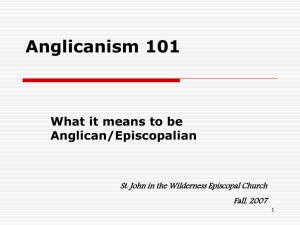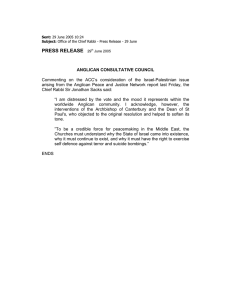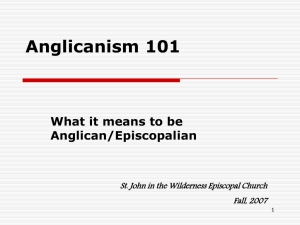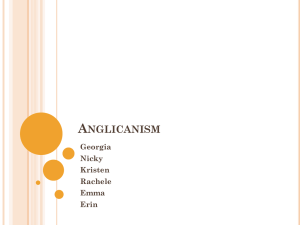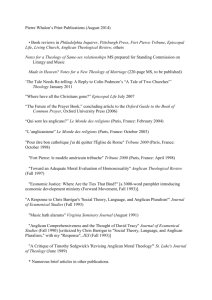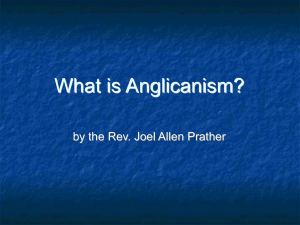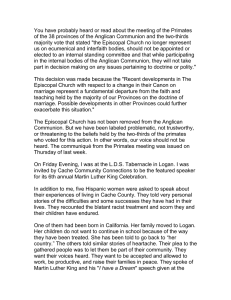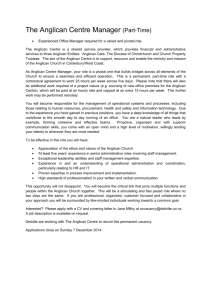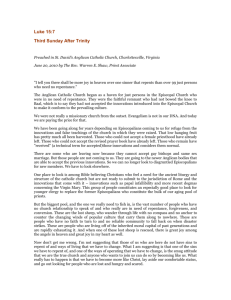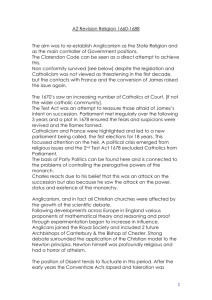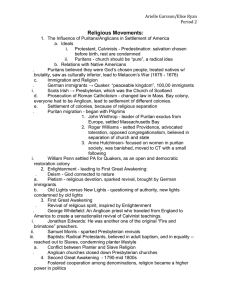Anglicanism 101 - St. John in the Wilderness Church
advertisement
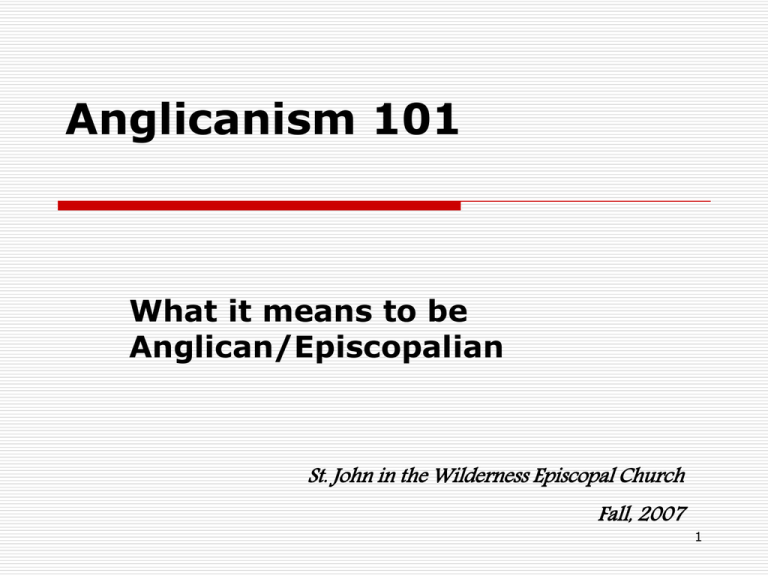
Anglicanism 101 What it means to be Anglican/Episcopalian St. John in the Wilderness Episcopal Church Fall, 2007 1 Anglicanism 101 Identity Authority English Reformation Book of Common Prayer A New American Church Emphases: Community Pastoral/Spiritual Care Mission/Work of the Church 2 Week 1 Identity: Who/what are we? Who/what are we not? 3 What Anglicanism is not… (less emphasis) Confessional Doctrinal Dogmatic Systematic 4 What Anglicanism is… A “unique way of looking, making sense, and acting in the experience of God disclosed to us in the person of Jesus Christ…” – Urban Holmes Both catholic and protestant… Catholic sacramental theology Protestant focus on Scripture And more…. 5 What it is…. (continued) Ambiguous Via media - middle way between extremes Tension between unresolved issues Comprehensive Community of thought vs. definitive position 6 What it is… (continued) Sacramental, mystical God as loving, caring, open Not judgmental, rigid Incarnational The love of God expressed in ordinary things Ordinary things raised to a higher level Use of “real” bread, wine, flowers, etc. whenever possible Finding God in the ordinariness of life “Extraordinary shines through the ordinary” Often artistic Liturgy, poetry, music, life 7 Basic Anglican Understandings We PRAY together, in the vernacular/s of the community In communion with Canterbury, worldwide Use of some descendant of the Book of Common Prayer (usually) “via media” = middle way between extremes Elizabethan Settlement (Elizabeth I, 1559): “I will not make windows into men’s souls” 8 Anglican Authority Recognizes and values relationships Differences, otherness contribute to celebration of God’s Creation Provides liturgical grounding for mission More than worship, but worship most important community event Authority comes from God, not humans Calls for power-sharing relationships everywhere in church and society Clergy, bishops, Archbishop of Canterbury not “in control” of others, but “in communion with” 9 Anglican Authority: “Three-Legged Stool” 1. Scripture 2. Tradition 3. Reason Some add Experience All interacting 10 Sources Edwards, David. What Anglicans Believe. Cincinnati: Forward Movement, 1996. Holmes, Urban T. III. What Is Anglicanism? Harrisburg, PA: Morehouse, 1982. Howe, Bp. John. Our Anglican Heritage. Elgin, IL: Cook, 1977. Hein, David, and Shattuck, Gardiner H. Jr. The Episcopalians. Westport, CT: Praeger, 2004. Episcopal Diocese of Southern Ohio, available at http://www.episcopal-dso.org/ 11
